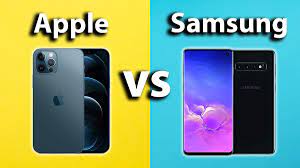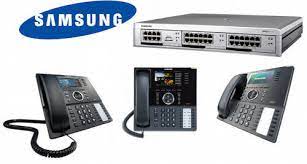Advertisements
The two kingpins of the smartphone industry are Apple and Samsung, but which is the better option? Here, we will examine the characteristics that set the 2 apart. The Apple iPhone and therefore the Android-powered Samsung Galaxy S series are two of the most well-liked options on the market if you’re searching for a high-end cell phone.
At the high end of the market, where the best smartphones cost upwards of $1,000, these phones compete annually with the most recent features, camera technology, and styles. A base model, a “Plus” or “Pro” version with added features and/or a bigger display, and therefore the very top end “Ultra” or “Max” are now frequently seen in several varieties of these flagships.
It’s difficult to settle between them and compare the advantages of cheaper phones made by these firms. We’re prepared to help. most people already know which smartphone they prefer when comparing iPhones and Samsung models. you’ve got your iPhone fanatics who have been devoted Apple customers for years on the one hand. On the opposite hand, there are Samsung devotees who simply can’t get enough of the cutting-edge inventions made by the industry titans.
However, choosing between an iPhone or a Samsung phone for the standard consumer shouldn’t merely come down to personal preference. to research both options side by side and reach a choice, it’s necessary. That’s exactly what we’ll be doing during this essay.
1. The cost and the value received
The pricing disparity between Samsung’s flagship models and iPhones could also be the most obvious one. although Apple supporters may disagree, if you’re unfamiliar with the Apple ecosystem, you’ll initially think that iPhones are pricey. whether or not they are still quite expensive, Samsung’s flagships are more likely to supply you with a better value for your money.
Additionally, you’ll anticipate finding a decent price regardless of your budget because Samsung has such a large selection of smartphone models. In contrast, the flawless iOS software experience and tight integration of iPhones with other Apple goods like AirPods or Apple Watch are mostly what makes them worthwhile.
Advertisements
once you purchase an iPhone, you’re highly likely to get the most out of your device, you’ll discover that you simply want to purchase additional Apple devices.
2. Cameras
Regarding pure photo quality, image consistency, and video quality, iPhones have typically received higher accolades than their Samsung rivals. Samsung, however, considerably raised its game with the Galaxy S22 Ultra and therefore the S22 series in general. Samsung devices provide far more sophisticated, enjoyable, and varied photographic experiences overall, despite the very fact that consistency is still Apple’s strong strength.
Samsung phones are those to choose from if you enjoy tinkering with your camera and testing out novel camera capabilities. However, if you’d rather have a more balanced image and video profile and don’t want abrasive image processing algorithms to automatically modify
iPhones are excellent at doing the work for you.
This makes them perfect for professionals that emphasize natural colors and a more dependable camera experience while also doing their own picture and video editing. In other words, instead of being objective measures of image quality, the camera variations between iPhones and Samsung phones are more about personal preference.
3. Operating System
It wont to be quite straightforward to compare iOS with Android because of the cliche that iOS is simpler and Android is more configurable. The narrative wont to end there before. Although the previous claims still hold some sway today, both operating systems have evolved through time as is the nature of competition.
It’s not unexpected given that Samsung is primarily a hardware firm if you remember TouchWiz, Samsung’s previous interface, how terrible the company’s software game wont to be. However, Samsung’s current One UI overlay, which is made on top of Android, offers unquestionably one of the purest software experiences available.
On the opposite end of the scale, iOS may be a proprietary operating system that gives Apple more control over the user interface, improved RAM management, smoother program integration, user security, and dependability. Additionally, because there are fewer iOS devices available, app developers like Instagram or PUBG frequently improve their programs to raised fit the iOS experience.
the sturdiness of iPhones versus Samsung phones is another significant benefit. iPhones may easily last for five to 6 years, although Samsung currently provides four years of significant Android updates for its flagship and mid-range phones.
There is, however, a big exception to this. Since lithium-ion batteries are utilized in smartphones, deterioration over time is unavoidable. If you are going to purchase an iPhone just for the extended OS support, remember that the battery life may suffer and you may need to purchase a new device in three to four years.
4. Assistants with voice
Since the 2011 release of the iPhone 4S, Siri has been the quality voice assistant for the smartphone. On the opposite hand, Samsung debuted Bixby, their in-house voice assistant, in 2017 alongside the Galaxy S8.
as a replacement for the already beneficial Google Assistant available on Android smartphones.
Although the trouble was certainly admirable, Bixby wasn’t, and in many respects still isn’t, a match for Google Assistant and Apple’s Siri, although it does take the lead in some particular situations. However, Google Assistant remains the greatest voice assistant to use on any smartphone, whether you employ an iPhone, a Samsung phone, or the other. this is often in terms of simplicity and intuitiveness.
4. Battery top-notch
Apple has rarely engaged in the smartphone war with sweeping battery-related claims. In contrast, Samsung appears to aggressively promote its enormous battery life and memorable quick charging speeds in its advertisements.
The iPhone’s proprietary OS, iOS, is so effective that although it doesn’t have a large battery, it nevertheless ensures little energy usage, leading to exceptional battery life, notably within the iPhone 13 series. iPhones still have ways to travel when it comes to charging speed. The iPhone 13 Pro Max is often fully charged with an unauthorized 30W charger in about 90 minutes as opposed to approximately three hours with Apple’s MagSafe charger.
The Galaxy S22 Ultra, in contrast, can be fully charged in over an hour when using the 45W Samsung charger, making it more suitable for heavy users or gamers. Unfortunately, both companies no longer include chargers for their flagship models in the box.
Which of Apple and Samsung Is Right for You?
When choosing between two excellent smartphone choices, it usually comes down to personal preference. Also true in this instance, the majority of iPhone buyers do so for the flawless user experience and tightly integrated Apple ecosystem. iPhones more reliably execute essential functions including calling, video recording, system navigation, and web browsing.
Samsung phones, on the other hand, are the best option if you’re feeling a little more daring and want a template on top of which you may modify and customize your smartphone. Samsung flagships never fail to impress because of arguably better design, a more enjoyable camera experience, more functionality, and the One UI skin.


